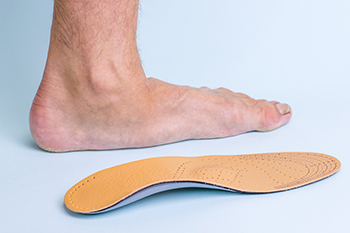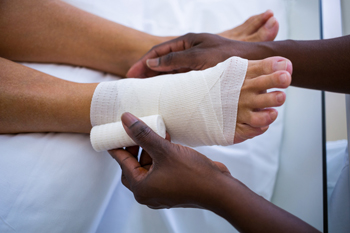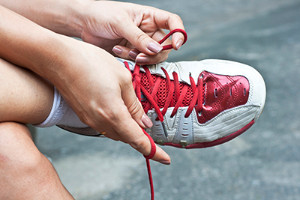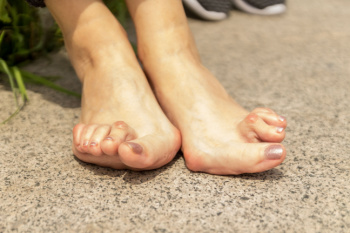Items filtered by date: December 2024
Causes and Symptoms of Gout

Gout is a form of arthritis that results in sudden, severe pain, swelling, and redness, often affecting the big toe. It is more common in men, particularly those over the age of 40, although it can affect women, especially after menopause. Gout occurs when excess uric acid builds up in the bloodstream, forming sharp crystals that accumulate in the joints. This typically happens due to dietary factors, such as consuming high-purine foods like red meat, shellfish, and alcohol. Additionally, obesity, dehydration, or certain medical conditions like high blood pressure or diabetes can significantly contribte to developing gout. During a gout attack, the affected joint becomes intensely painful, swollen, and inflamed. While medication can help control symptoms, recurring gout attacks can lead to joint damage over time. A podiatrist can help manage gout by providing treatments like anti-inflammatory medications, dietary guidelines, and customized footwear to reduce joint stress. They can also assist in preventing future flare-ups. If you are experiencing gout symptoms, it is suggested that you schedule an appointment with a podiatrist.
Gout is a foot condition that requires certain treatment and care. If you are seeking treatment, contact one of our podiatrists from Florida Ankle & Foot Institute. Our doctors will treat your foot and ankle needs.
What Is Gout?
Gout is a type of arthritis caused by a buildup of uric acid in the bloodstream. It often develops in the foot, especially the big toe area, although it can manifest in other parts of the body as well. Gout can make walking and standing very painful and is especially common in diabetics and the obese.
People typically get gout because of a poor diet. Genetic predisposition is also a factor. The children of parents who have had gout frequently have a chance of developing it themselves.
Gout can easily be identified by redness and inflammation of the big toe and the surrounding areas of the foot. Other symptoms include extreme fatigue, joint pain, and running high fevers. Sometimes corticosteroid drugs can be prescribed to treat gout, but the best way to combat this disease is to get more exercise and eat a better diet.
If you have any questions please feel free to contact our offices located in Tavernier, Marathon, and Key West, FL . We offer the newest diagnostic and treatment technologies for all your foot and ankle needs.
Arch Support Benefits for Flat Feet

Arch support orthotics offer significant advantages for individuals with flat feet, enhancing their walking and standing mechanics. These specialized inserts are designed to align and stabilize the foot, addressing issues caused by fallen arches. By redistributing weight across the sole, they reduce strain on the foot, improving stance time and pace while minimizing discomfort during movement. Flat feet often lead to uneven plantar pressure, which can cause pain or fatigue over time. Arch supports alleviate this by providing structured cushioning that balances foot pressure and increases contact area for better support. Determining the need for these insoles requires a professional evaluation. A podiatrist can assess foot structure, gait, and pressure distribution using advanced diagnostic tools. If you have flat feet that are causing you discomfort, it is suggested that you schedule an appointment with a podiatrist to see if orthotics are recommended for you.
If you are having discomfort in your feet and would like to try orthotics, contact one of our podiatrists from Florida Ankle & Foot Institute. Our doctors can provide the care you need to keep you pain-free and on your feet.
What Are Orthotics?
Orthotics are inserts you can place into your shoes to help with a variety of foot problems such as flat feet or foot pain. Orthotics provide relief and comfort for minor foot and heel pain but can’t correct serious biomechanical problems in your feet.
Over-the-Counter Inserts
Orthotics come in a wide variety of over-the-counter inserts that are used to treat foot pain, heel pain, and minor problems. For example, arch supports can be inserted into your shoes to help correct overarched or flat feet, while gel insoles are often used because they provide comfort and relief from foot and heel pain by alleviating pressure.
Prescription Orthotics
If over-the-counter inserts don’t work for you or if you have a more severe foot concern, it is possible to have your podiatrist prescribe custom orthotics. These high-quality inserts are designed to treat problems such as abnormal motion, plantar fasciitis, and severe forms of heel pain. They can even be used to help patients suffering from diabetes by treating foot ulcers and painful calluses and are usually molded to your feet individually, which allows them to provide full support and comfort.
If you are experiencing minor to severe foot or heel pain, it’s recommended to speak with your podiatrist about the possibilities of using orthotics. A podiatrist can determine which type of orthotic is right for you and allow you to take the first steps towards being pain-free.
If you have any questions please contact our offices located in Tavernier, Marathon, and Key West, FL . We offer the newest diagnostic and treatment technologies for all your foot and ankle needs.
Gout Pain Can Be Managed
Negative Pressure Wound Therapy

Negative pressure wound therapy, or NPWT, is an advanced treatment that helps heal stubborn wounds on the feet, toes, and ankles. This therapy uses a gentle vacuum to remove excess fluid and improve blood flow, creating an ideal environment for healing. It is commonly used for diabetic foot ulcers, surgical wounds, and other injuries that are slow to heal or at risk of infection. By reducing swelling and encouraging healthy tissue growth, negative pressure wound therapy supports the body’s natural healing process and lowers the risk of complications. A podiatrist can evaluate your wound to determine if negative pressure wound therapy is suitable, and will oversee the treatment to ensure it is applied correctly for the best results. This therapy has proven to be an effective option for people dealing with complex wounds that do not respond to traditional care. If you have foot ulcers or wounds that will not heal, it is suggested that you schedule an appointment with a podiatrist to determine if negative pressure wound therapy is right for you.
Wound care is an important part in dealing with diabetes. If you have diabetes and a foot wound or would like more information about wound care for diabetics, consult with one of our podiatrists from Florida Ankle & Foot Institute. Our doctors will assess your condition and provide you with quality foot and ankle treatment.
What Is Wound Care?
Wound care is the practice of taking proper care of a wound. This can range from the smallest to the largest of wounds. While everyone can benefit from proper wound care, it is much more important for diabetics. Diabetics often suffer from poor blood circulation which causes wounds to heal much slower than they would in a non-diabetic.
What Is the Importance of Wound Care?
While it may not seem apparent with small ulcers on the foot, for diabetics, any size ulcer can become infected. Diabetics often also suffer from neuropathy, or nerve loss. This means they might not even feel when they have an ulcer on their foot. If the wound becomes severely infected, amputation may be necessary. Therefore, it is of the upmost importance to properly care for any and all foot wounds.
How to Care for Wounds
The best way to care for foot wounds is to prevent them. For diabetics, this means daily inspections of the feet for any signs of abnormalities or ulcers. It is also recommended to see a podiatrist several times a year for a foot inspection. If you do have an ulcer, run the wound under water to clear dirt from the wound; then apply antibiotic ointment to the wound and cover with a bandage. Bandages should be changed daily and keeping pressure off the wound is smart. It is advised to see a podiatrist, who can keep an eye on it.
If you have any questions, please feel free to contact our offices located in Tavernier, Marathon, and Key West, FL . We offer the newest diagnostic and treatment technologies for all your foot care needs.
Pickleball Shoes That May Help to Prevent Plantar Fasciitis

Playing pickleball can put stress on your feet, so choosing the right shoes is essential for preventing plantar fasciitis. Look for shoes with a plush tongue and collar that provide a soft, cushioned feel around the ankle. This added comfort helps reduce pressure on your feet during intense movements. A lightweight construction allows for swift and agile footwork without straining your legs. The upper of the shoe should be crafted from a breathable blend of leather and mesh, ensuring proper ventilation to keep your feet cool and dry. Shock-absorbing soles are another essential feature as they help reduce the impact on your heels and arches, providing additional support to prevent injury. You can enjoy pickleball while protecting your feet from plantar fasciitis with the right pair of shoes. If you have foot pain from playing pickleball, contact a podiatrist who can offer effective treatment solutions and determine the best shoes for this popular sport.
If you are a runner, wearing the right running shoe is essential. For more information, contact one of our podiatrists from Florida Ankle & Foot Institute. Our doctors can provide the care you need to keep you pain-free and on your feet.
Choosing the Right Running Shoe for Your Foot Type
To increase performance and avoid the risk of injury, it is important to choose the right running shoe based on your foot type. The general design of running shoes revolves around pronation, which is how the ankle rolls from outside to inside when the foot strikes the ground.
- Neutral runners are able to choose from a wide variety of shoes, including minimalist shoes or even going barefoot.
- Runners who overpronate, or experience an over-abundance of ankle rolling, should choose shoes that provide extra motion control and stability.
- Runners who underpronate, or supinate, have feet that have high arches and lack flexibility, preventing shock absorption. They require shoes with more flexibility and cushion.
If you have any questions please feel free to contact our offices located in Tavernier, Marathon, and Key West, FL . We offer the newest diagnostic and treatment technologies for all your foot and ankle needs.
Joint Pain in Feet May Be Symptom of Rheumatoid Arthritis

Joint pain in the feet is a common symptom of rheumatoid arthritis, or RA, an autoimmune disease that causes inflammation in the joints. RA typically affects both feet and hands, often starting in the smaller joints. The pain is usually accompanied by swelling, stiffness, and redness, especially in the morning or after periods of inactivity. As the disease progresses, the inflammation can damage the cartilage and bones in the feet, leading to deformities and difficulty walking. In some cases, the pain can become chronic, limiting mobility and affecting daily activities. Early detection and treatment of RA are vital in managing symptoms and preventing further joint damage. Medications and lifestyle changes can help reduce inflammation and improve joint function. If you experience persistent foot pain, it is suggested that you consult a podiatrist to determine if RA or another condition may be the cause.
Because RA affects more than just your joints, including the joints in your feet and ankles, it is important to seek early diagnosis from your podiatrist if you feel like the pain in your feet might be caused by RA. For more information, contact one of our podiatrists of Florida Ankle & Foot Institute. Our doctors will assist you with all of your podiatric concerns.
What Is Rheumatoid Arthritis?
Rheumatoid Arthritis (RA) is an autoimmune disorder in which the body’s own immune system attacks the membranes surrounding the joints. Inflammation of the lining and eventually the destruction of the joint’s cartilage and bone occur, causing severe pain and immobility.
Rheumatoid Arthritis of the Feet
Although RA usually attacks multiple bones and joints throughout the entire body, almost 90 percent of cases result in pain in the foot or ankle area.
Symptoms
- Swelling and pain in the feet
- Stiffness in the feet
- Pain on the ball or sole of feet
- Joint shift and deformation
Diagnosis
Quick diagnosis of RA in the feet is important so that the podiatrist can treat the area effectively. Your doctor will ask you about your medical history, occupation, and lifestyle to determine the origin of the condition. Rheumatoid Factor tests help to determine if someone is affected by the disease.
If you have any questions please feel free to contact our offices located in Tavernier, Marathon, and Key West, FL . We offer the newest diagnostic and treatment technologies for all your foot and ankle needs.




